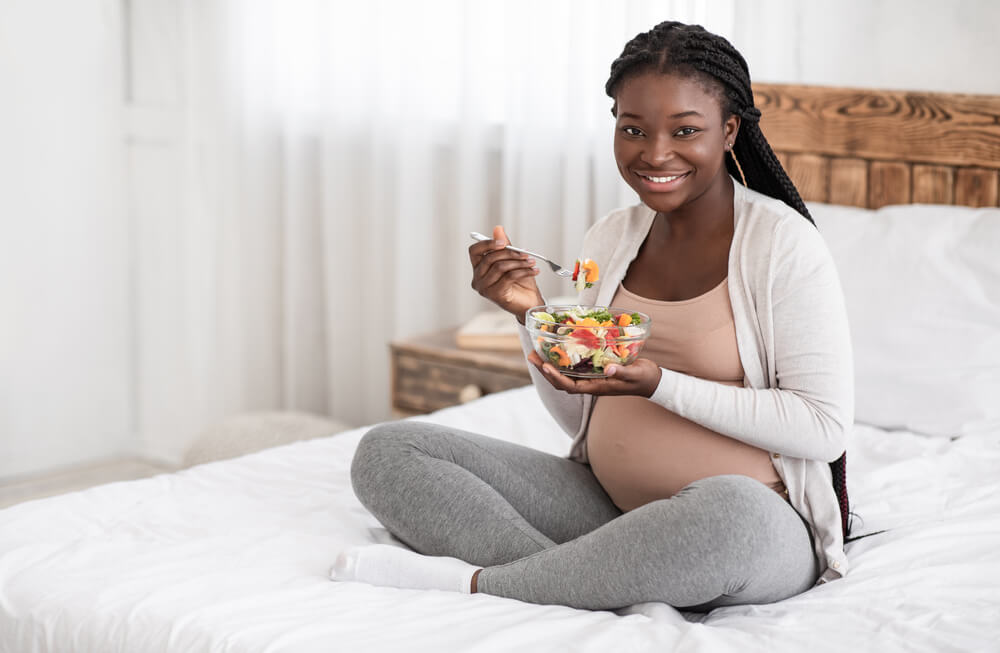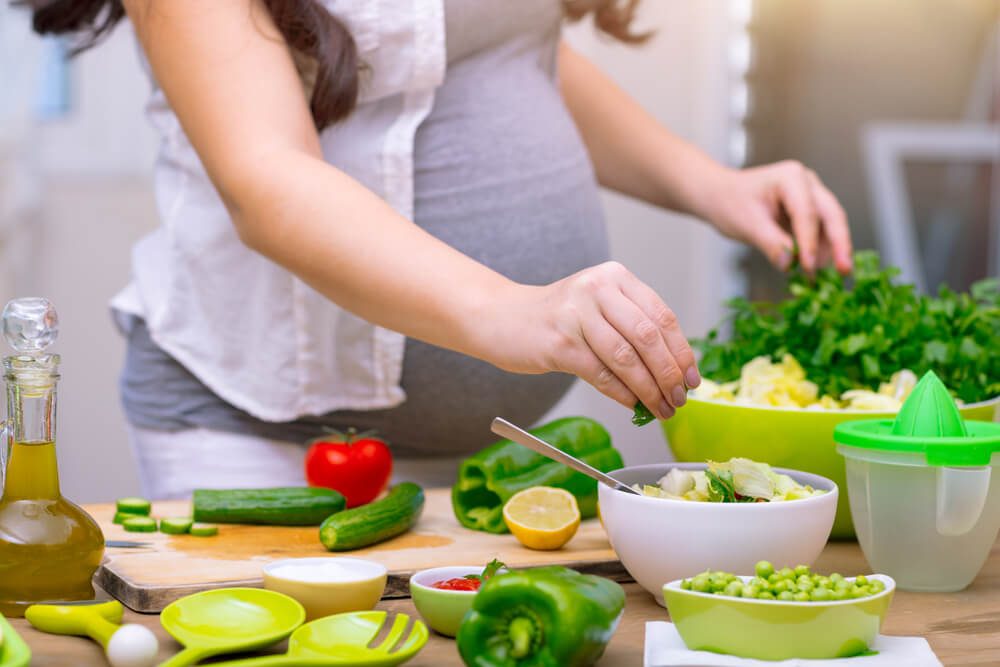Knowing which are the best pregnancy foods will ensure a complication-free delivery and a healthy child. In this article, you will learn about the best pregnancy foods to incorporate into your diet, which foods to avoid, and other helpful tips for a happier nine months. Remember, nutrition for a healthy pregnancy begins before conceiving the child. Typically, women go over their diet routines when they find out they are pregnant. Instead of asking your mother or best friend for nutrition advice, seek out the help of a trained professional at Prenatal Care in South Miami, Florida. By doing this, you will receive expert advice for meals for pregnant women and much more.
If this sounds good, keep reading for the best nutrition tips, according to the experts.
Why Is It Important to Eat Healthy Pregnancy Meals?
When you discover you’re pregnant, you are bound to have questions come to your mind, such as “Can I exercise?”, “Can I still eat sushi?”, “Is dairy bad for my baby?” and similar. Consuming a nutrient-dense diet is essential before and during pregnancy for the optimal brain development of the child. Choosing some of the best pregnancy foods is vital for healthy birth weight and reducing the risk of numerous congenital disabilities.
Women who incorporate healthy pregnancy meals have a reduced risk of anemia and other pregnancy symptoms like morning sickness and fatigue.
Talk to a healthcare professional for expert advice and guidance whenever in doubt. If you are looking for the best in the area, choose Obstetrics and Gynecology in South Miami, Florida. Remember, all meals for pregnant women should be rich in the following:
- Vitamin C
- Whole grains
- Calcium
- Protein
- Iron-rich foods
- Folic acid
- Vegetables and fruits
- Healthy fats
- Nutrients such as choline
Some weight gain is normal during pregnancy. When you incorporate some of the pregnancy foods listed in this article, you may gain some healthy weight, which is entirely normal. According to the American College of Obstetrics and Gynecology, women in a normal weight range before they get pregnant are recommended to gain up to 35 pounds. Make sure to discuss how much weight you should gain to have a healthy and complication-free pregnancy. The recommendations for weight gain will vary from one person to the next, and it will depend on various factors. For instance, women who were obese before conceiving may need different dietary needs than women who were at a healthy weight.
Best Pregnancy Foods

Choosing which pregnancy foods to add to your diet and which ones to avoid is crucial for preventing congenital disabilities and ensuring a seamless pregnancy. Remember that it does not matter whether this is your first pregnancy or your third, each time, you will need to evaluate and adjust your diet. Some women may also need to re-educe themselves about the pregnancy foods to eat and which to avoid. To make life easier for you, we have compiled the ultimate list of foods to incorporate and remove from your diet. Keep on reading to find out.
Consume More Vegetables
Pregnant women who eat nutrient-dense, fresh vegetables regularly are more likely to have a healthy and problem-free pregnancy. Some of the fantastic benefits of vegetables include:
- Being low in cholesterol, fat, and calories.
- Being a good source of fiber (this can prevent constipation).
- Being a good source of minerals and vitamins (such as folate, an essential vitamin needed to reduce the risk of spina bifida and neural tube defects during the development of the fetus).
Try to make your pregnancy meals as creative and colorful as possible with vegetables. You can add different vegetables to salads, sandwiches, smoothies, and other delicious dishes to boost the nutrient profile of the meal. Whenever you can, choose fresh vegetables. However, you can also opt for frozen or cooked veggies. All vegetables are healthy and good for you, so you do not need to stick to a specific kind. Making pregnancy meals with lots of leafy greens is typically best. Some of the most nutrient-dense vegetables that we recommend adding to your healthy pregnancy meals include:
- Asparagus
- Broccoli
- Cauliflower
- Squash
- Corn
- Salad greens
- Cucumbers
- Celery
- Sweet potato
- Peppers
Focus on Healthy Proteins
All healthy pregnancy meals should focus on getting in lean sources of quality protein. Foods rich in protein will support the baby’s growth, and simultaneously, they will provide the mother with sufficient energy. Besides that, good sources of protein will promote healthy brain and heart development of the baby.
Try to include a portion of the following protein sources in your healthy pregnancy meals:
- Turkey
- Chicken
- Lamb
- Pork
- Nuts
- Beans
- Veal
- Eggs
- Fish
- Peanut butter
- Meat substitutes such as tempeh and tofu
Incorporate Some Whole Grains
Meals for pregnant women should also include some good sources of carbohydrates such as whole-wheat pasta, oatmeal, cereals, and brown rice. These food items are rich in B vitamins, folic acid, iron, and fiber, all of which are needed for the proper development of the baby. Meals for pregnant women that include complex carbohydrates will also keep hemorrhoids and constipation at bay. Since these are some of the biggest discomforts among pregnant women, adding fiber-rich carbohydrates is beneficial.
Enrich Your Diet With Fruits
Consuming fruits is vital to curb sugar cravings, get enough fiber into your diet, and supply yourself and your unborn baby with plenty of vitamins and minerals. That said, make sure to eat whole fruits and drink juices sparingly. Although fruits are very healthy for you, they are typically high in sugar, so stay mindful of this fact. Also, if you choose to consume canned fruits, go for unsweetened products.
Moreover, be careful in your preparation of fruits. Refrain from using knives you have used to cut raw foods that could have bacteria. Always rinse the raw fruit under water and clean it properly. Sometimes, it is best to peel fruit to remove harmful bacteria from the outer rind.
These are some of the best pregnancy foods to add to your diet:
- Pears
- Avocados
- Grapes
- Apples
- Strawberries
- Bananas
- Mangoes
- Citrus fruits
- Dried fruits
Include Low-Fat Dairy Products
Low-fat dairy foods are a great source of protein and calcium, which are required for your baby’s proper bone development. If you consume dairy in moderation, you won’t have to worry about gaining weight. Always choose high-quality, pasteurized dairy products. Since pregnant women are more prone to infections, it is a good idea to eat pasteurized products such as cheese and yogurt. As a reminder, pasteurization kills germs in different dairy products.
Choose Healthy Fats

Fats, the good kind, are needed for an optimal pregnancy. According to nutritionists, healthy oils and fats are beneficial for the development of the baby’s eyes and brain. However, make sure to stick to up to six teaspoons daily.
Who Can I Consult for Help and Advice?
Always talk to a healthcare professional before adjusting your diet for pregnancy. A specialist will give you advice on which foods to avoid and which ones to add to your diet, and the specific amount of calories needed for you. Remember, we are all different, and not all pregnancies are alike.
Give Us a Call Today
If you have any questions or concerns, contact us at Obstetrics and Gynecology in South Miami for expert consultation. We are here to help you, no matter the dilemma. Schedule an appointment today to get started.


